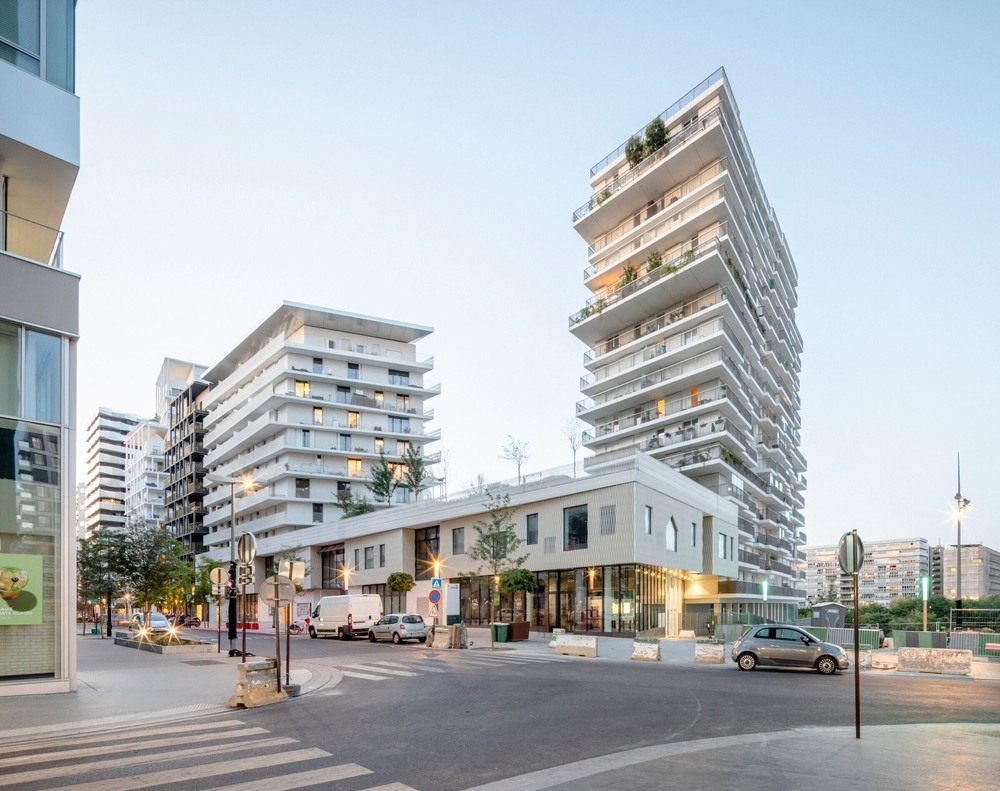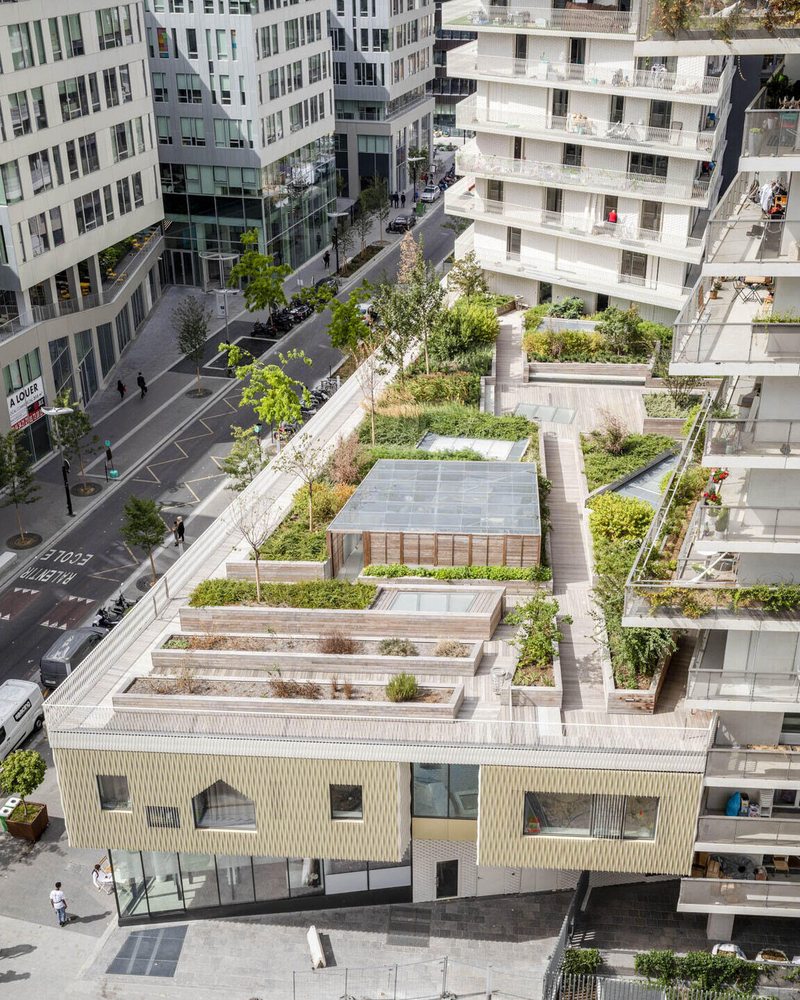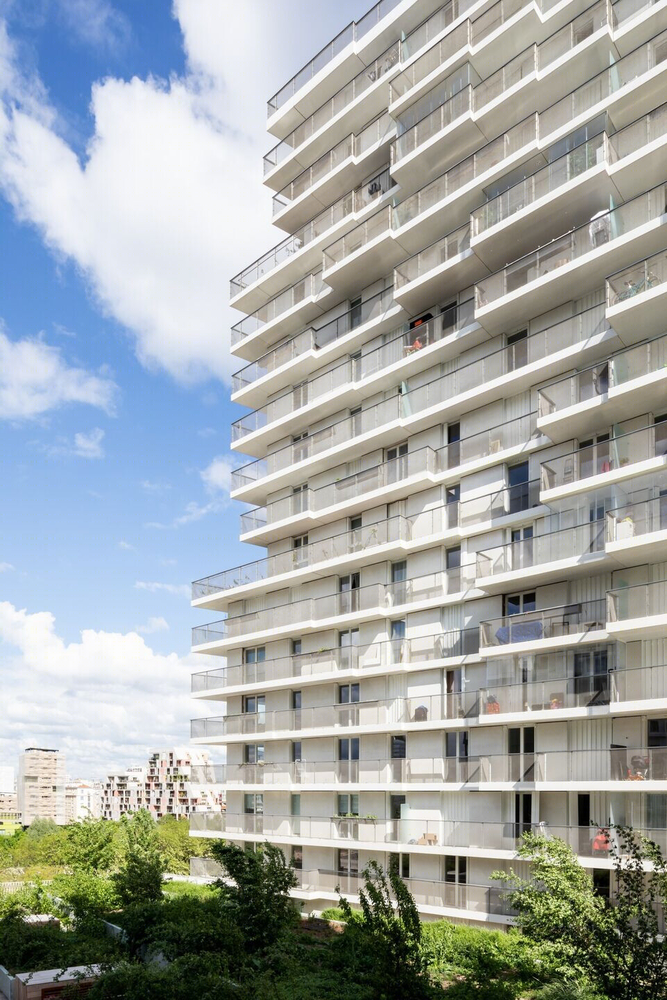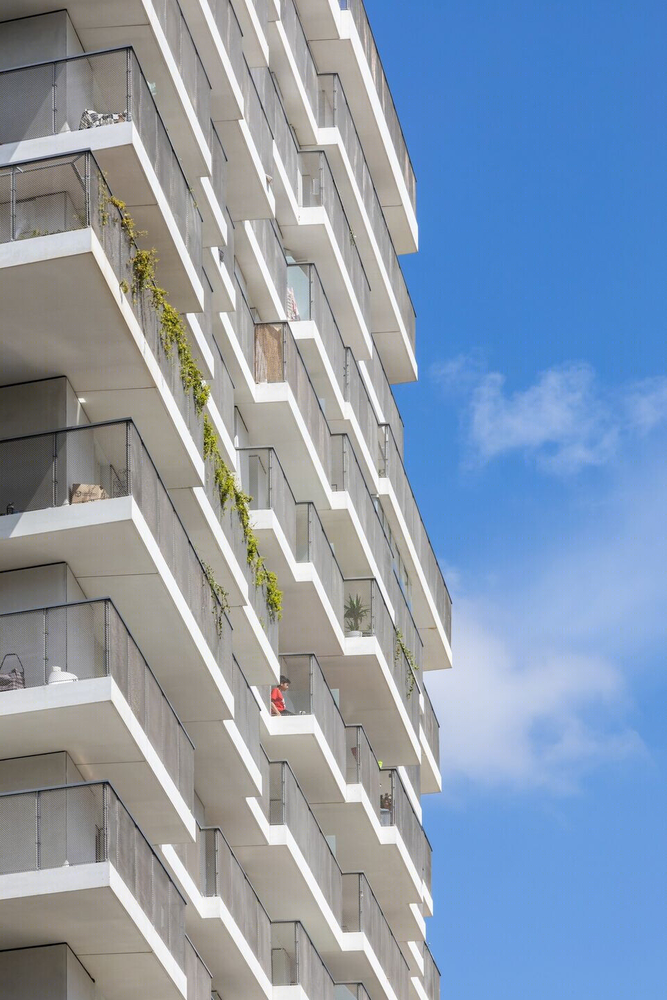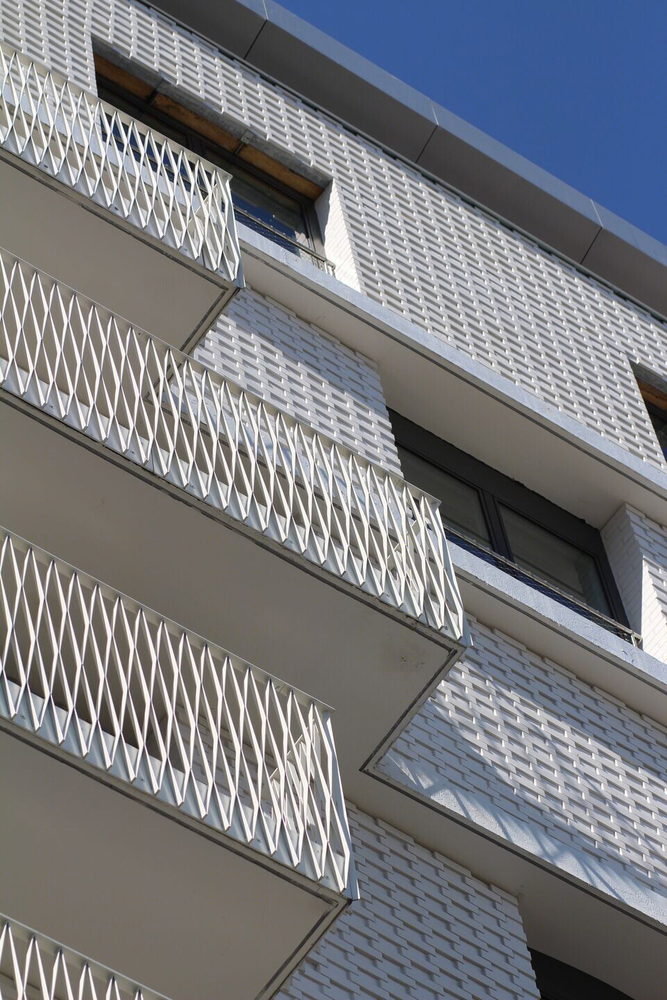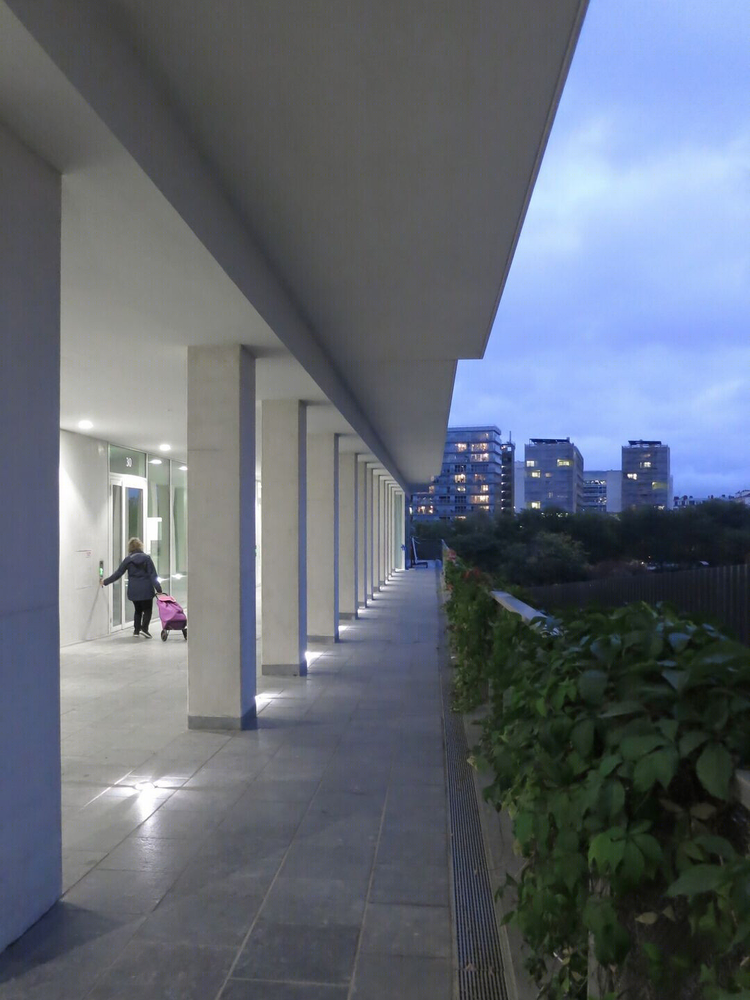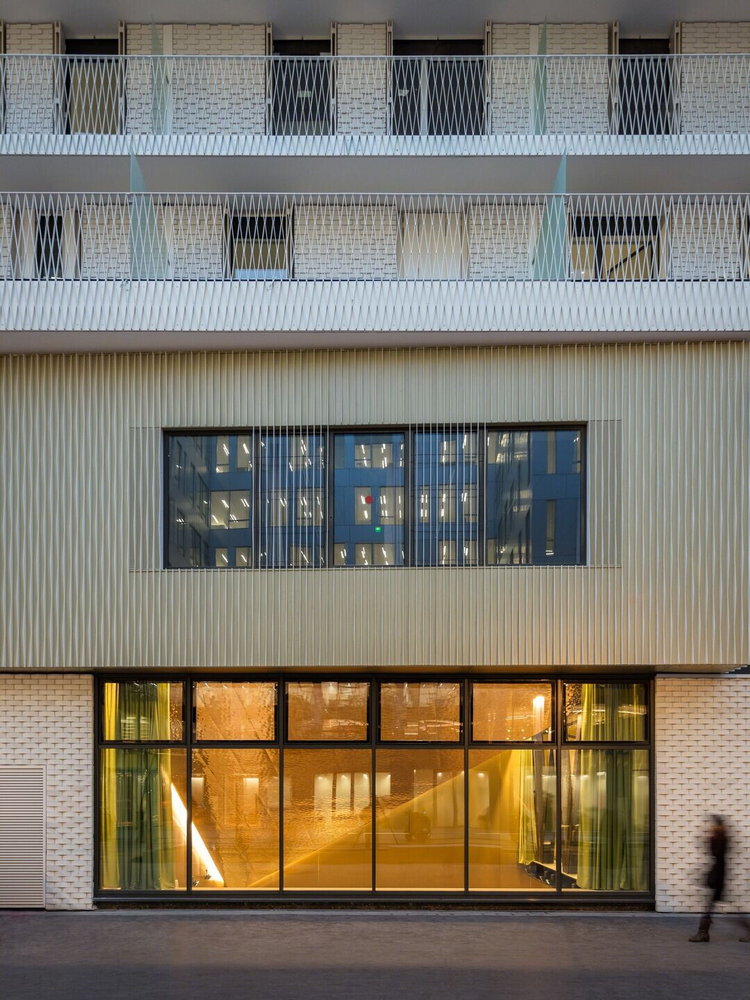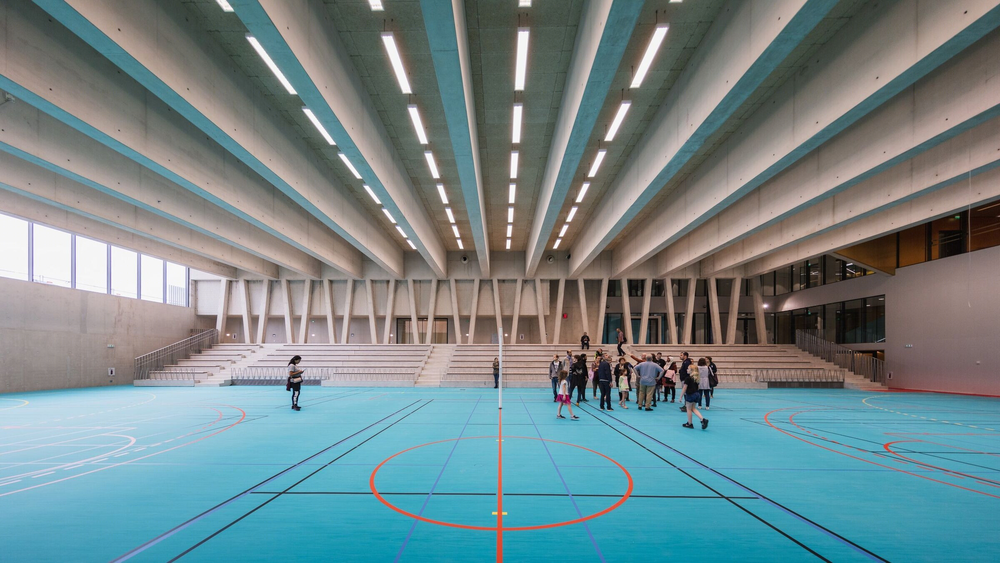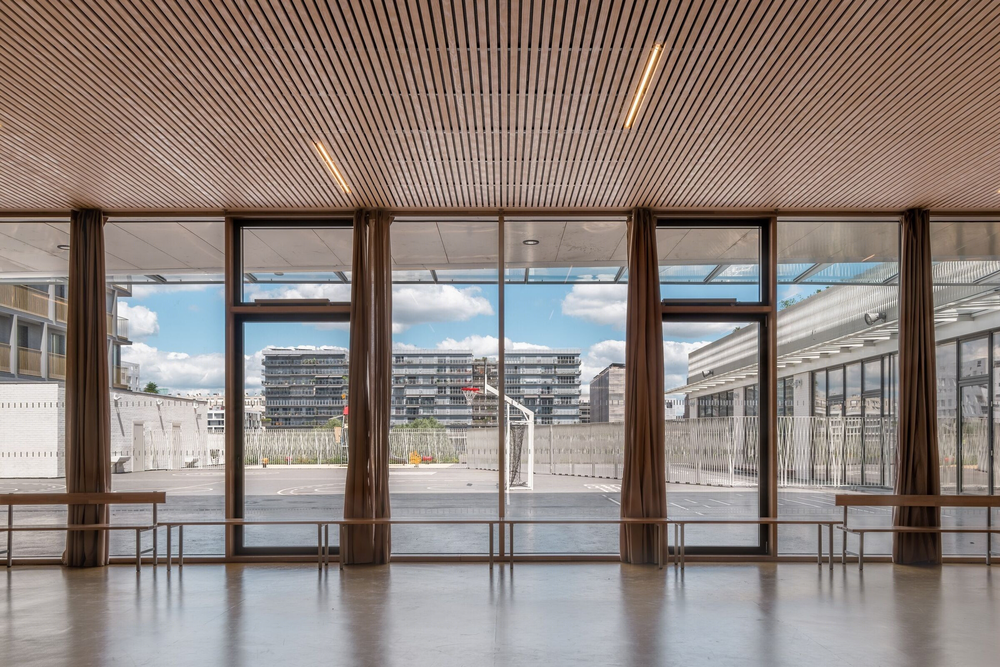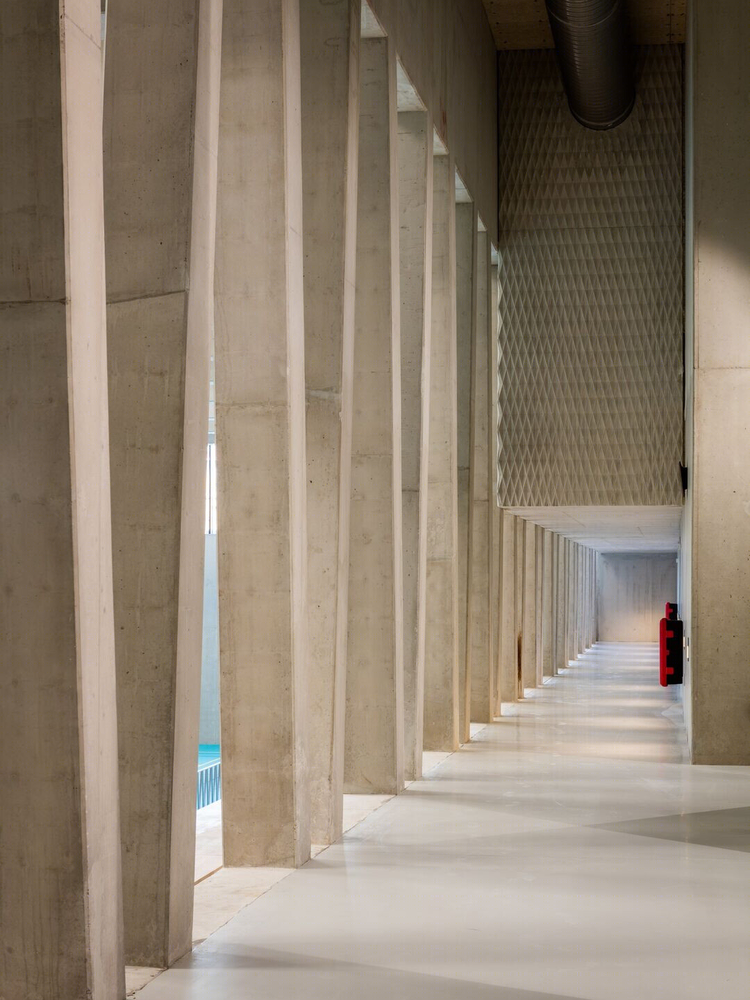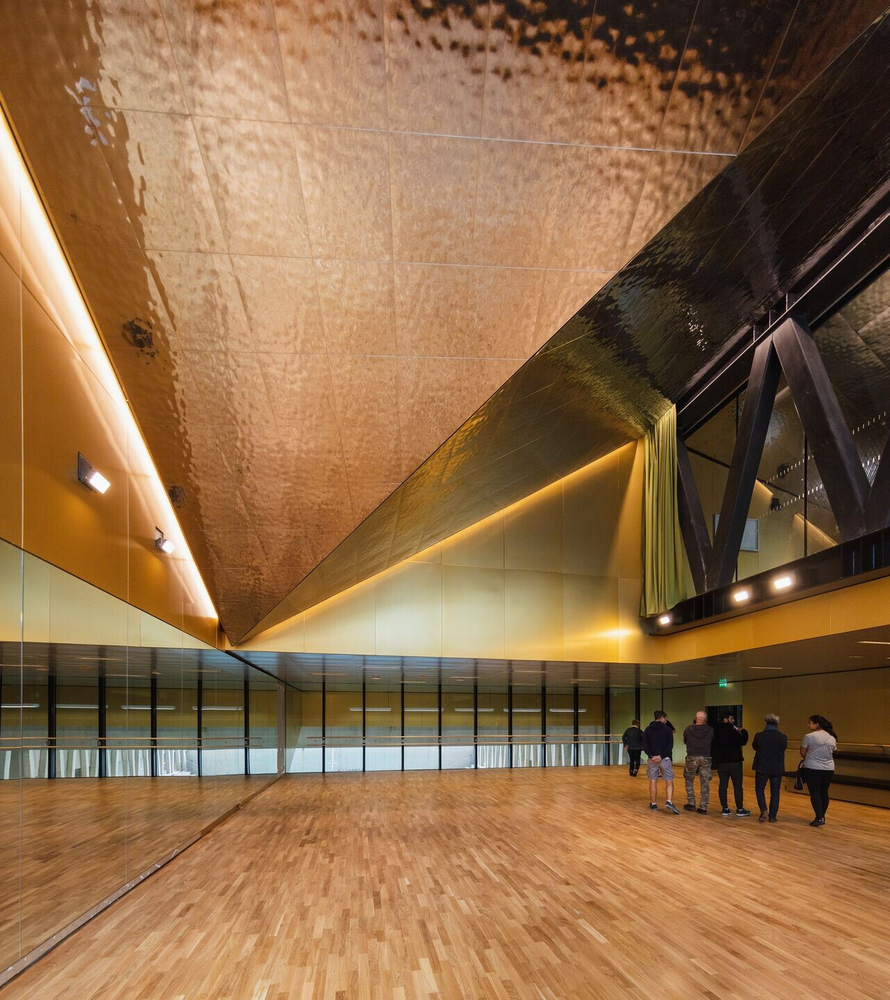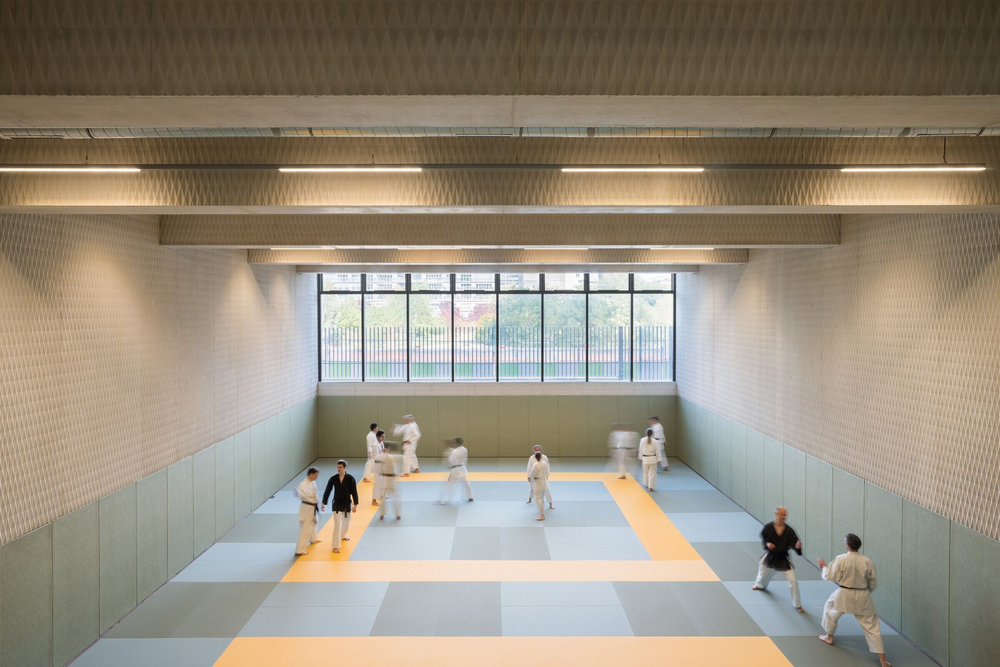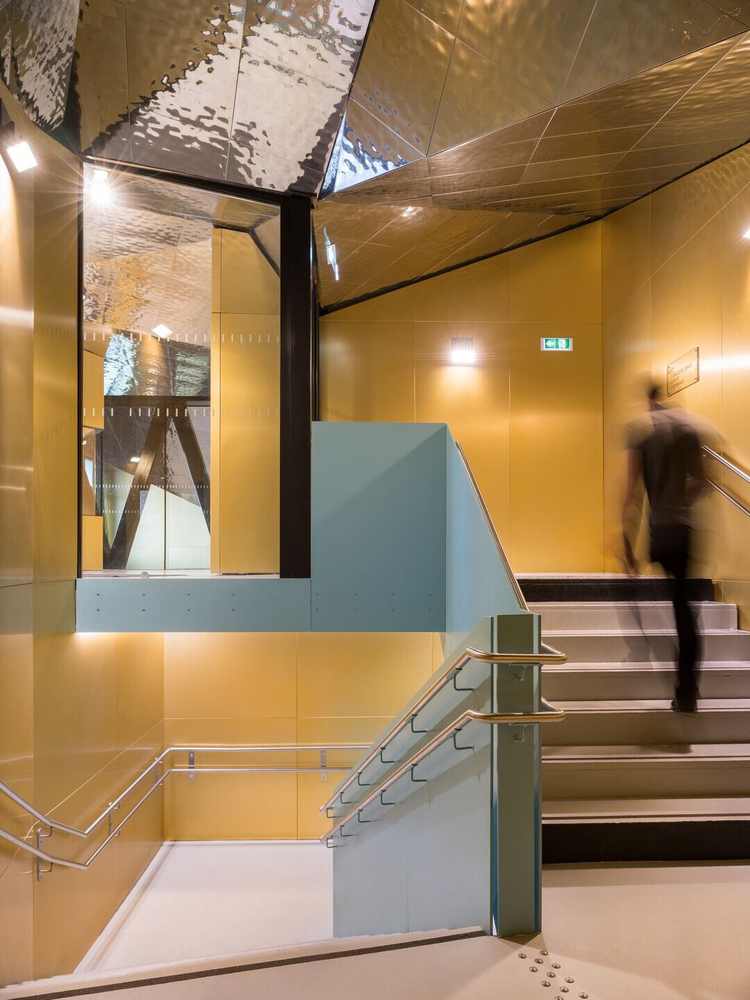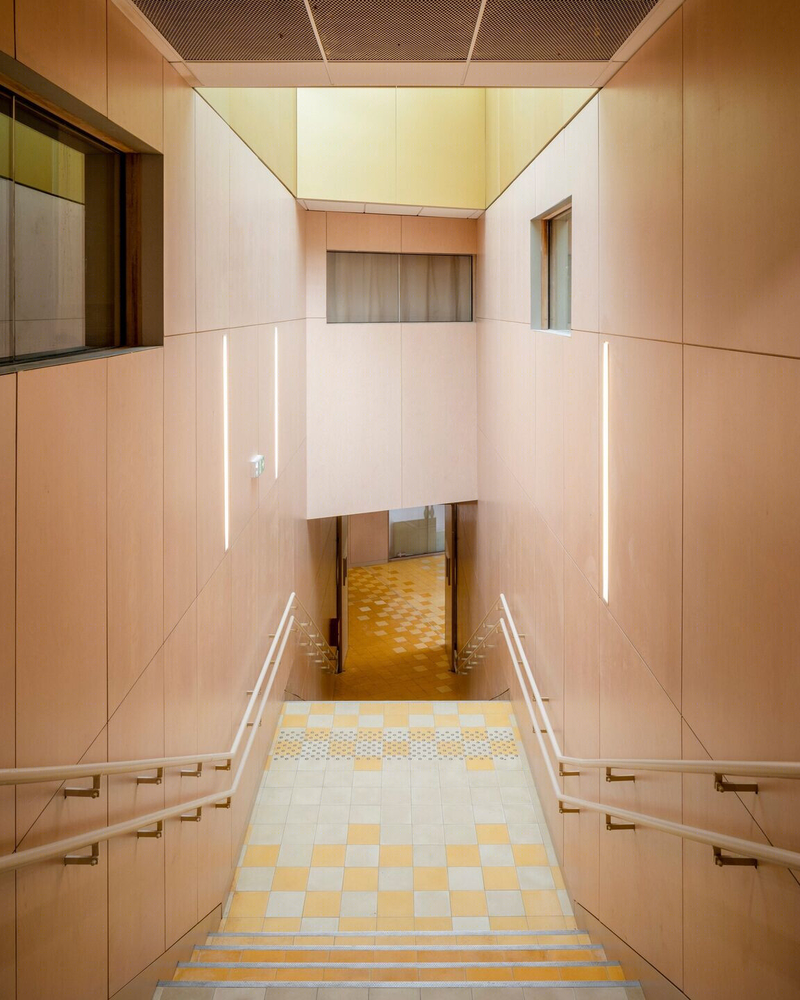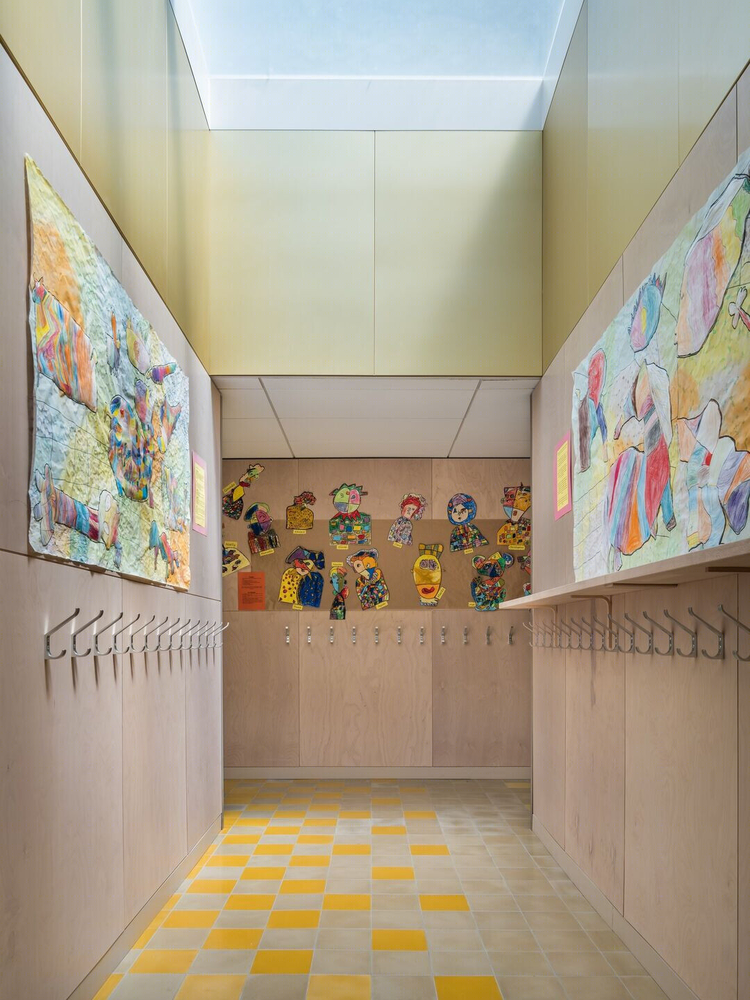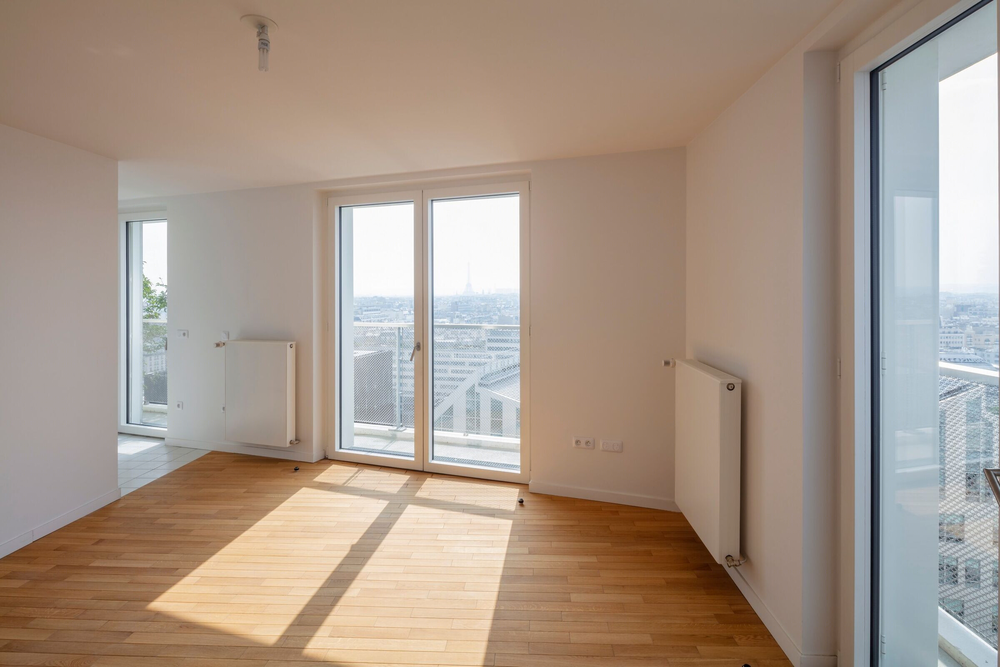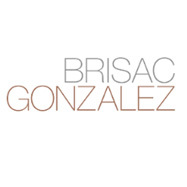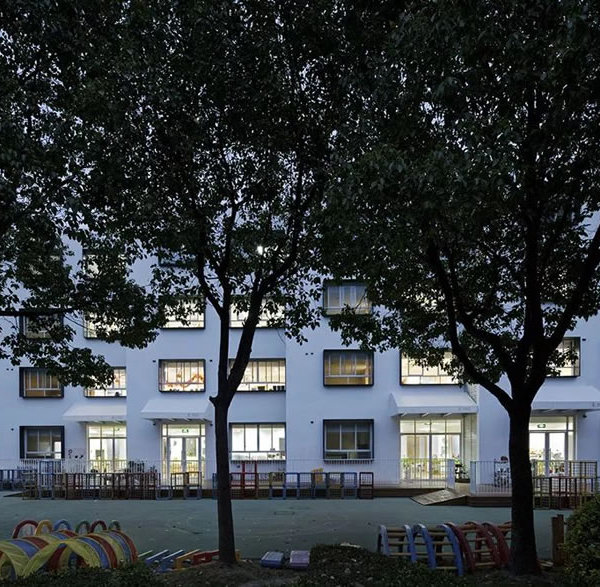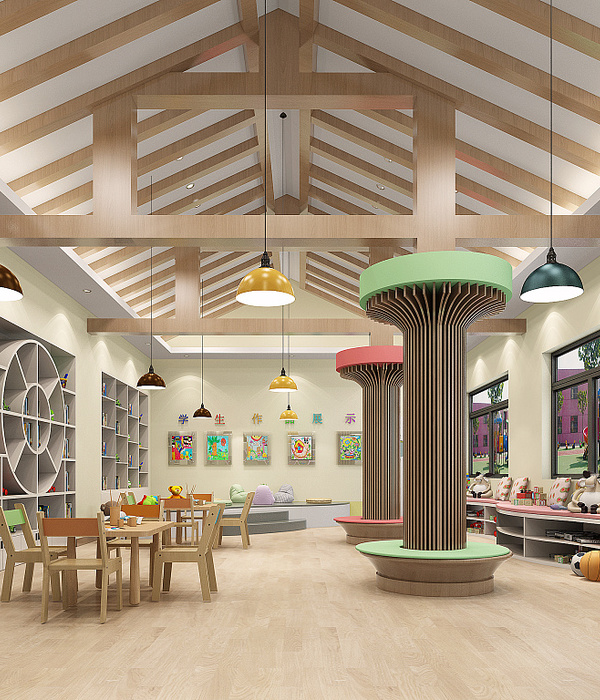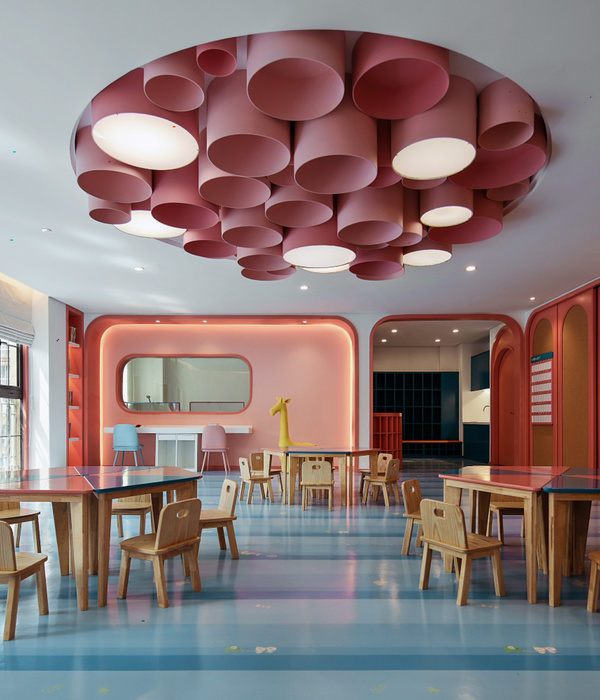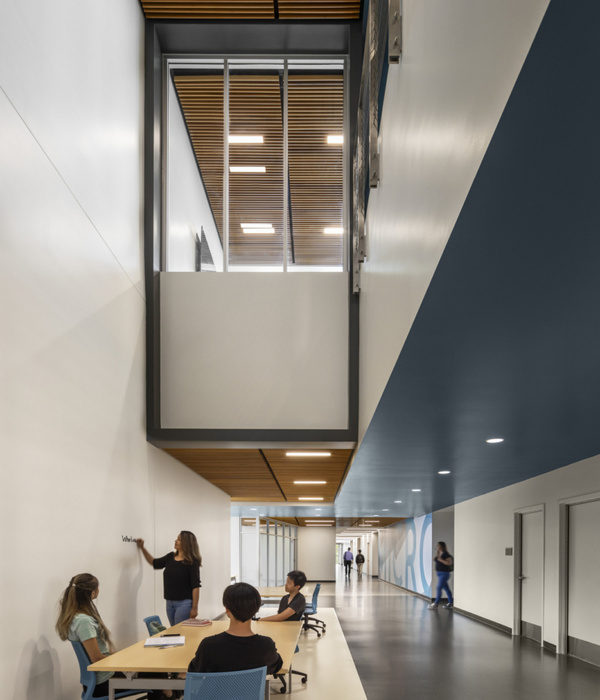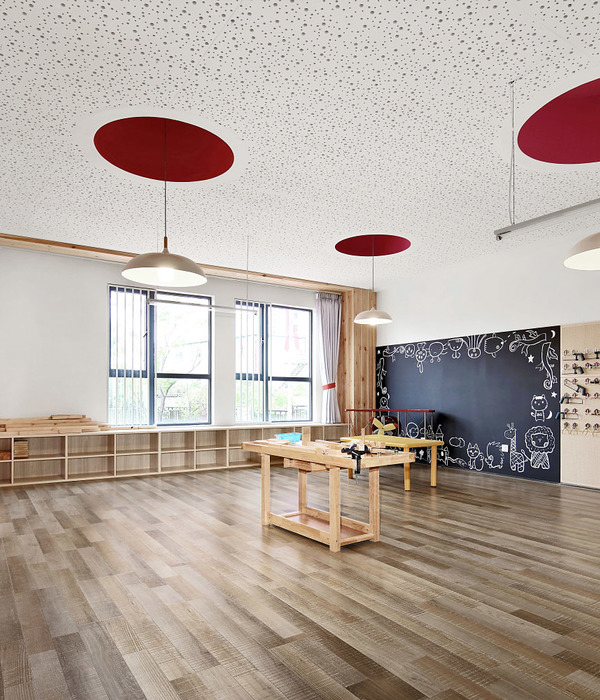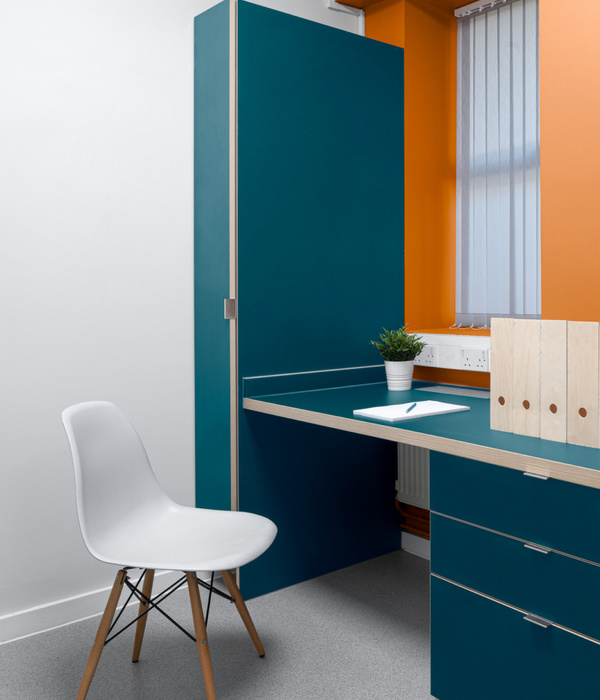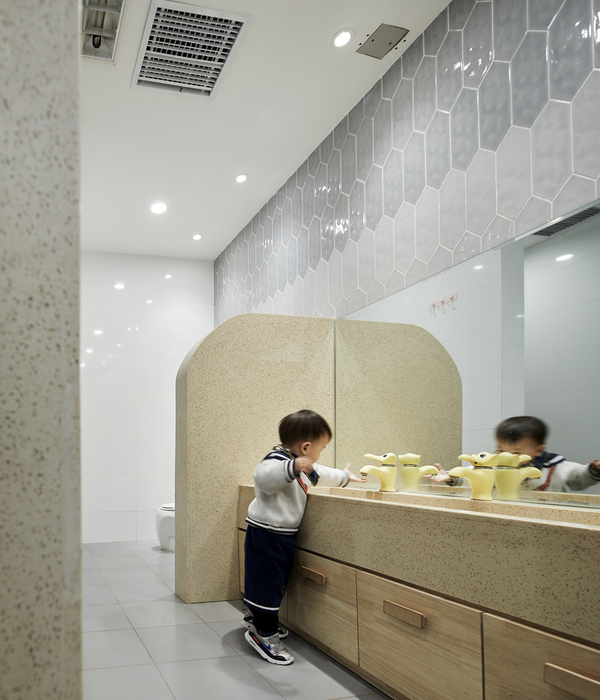巴黎生态区亮丽共享公寓
Architect:Brisac Gonzalez Antoine Regnault Architecture
Location:30 – 38 Rue Mstislav Rostropovitch, 75017 Paris, France
Project Year:2019
Category:Primary Schools Sports Centres Social Housing
Brisac Gonzalez Architects and Antoine Regnault deliver ambitious mixed-use public project with exemplary social housing in central Paris. Set within a new Eco-district in Paris, the mixed-use scheme illustrates how a complex brief, high urban density and stringent environmental standards can result in high-quality, bright, spacious and elegant designs for social homes and public building.
Generosity within a dense city
The city of Paris’ ambition was to provide exemplary public buildings and social housing within the new Ecodistrict of Clichy-Batignolles. Our answer has been to use generosity as a design strategy. The scheme was won unanimously by the two architects through a competition in 2012, followed by a six months workshop process and public consultation involving the key decision makers of the mixed development zone of Clichy-Batignolles. This included city officials, the architects and client teams of five other sites in the south-west zone, end-users, masterplan and landscape architects, utility companies, and end-users.
Situated in the 17th district, the site is part of a new highly connected neighborhood built over a former railyard around a new 10ha park. Freeing up the land for the park and building major new rail infrastructures, schools, sports facilities and law courts, resulted in plots of land of a high density. The site itself stretches between the park and an artificial street, and comprises 144 social housing units, a 15- classroom primary school and a regional level sports centre. Housing is organised over two buildings, each designed by a different architect; Brisac Gonzalez delivered all the public amenities and retail as well as the housing block on the street, and Antoine Regnault designed the housing block on the park.
We took on the challenge of ensuring that the building’s users and the general public at street level would not feel this density and created a sense of lightness and openness. Stacking the three components of the brief and splitting the two towering volumes created a defined yet open corner. This allows light to flood into the block and creates the setting for a south-facing landscaped roof terrace. The result is an elevated quality of living spaces, basked in sunlight, with balconies wrapped around all sides. The building stands as a moment of respite within its busy surroundings, extending the presence of the park to the city.
The design is conceived to be a gust of generosity. It features shared amenities such as a shared roof garden, a bicycle repair workshop, a communal room, and a sky terrace to encourage social interaction. This quality trickles down from the urban strategy to the architectural spaces and interior finishes, including those of the social housing units. Solid wood floors, high acoustic standards, large wood/ aluminum French doors and expansive balconies complement the bright and air-filled homes for the residents.
Identity
The building is designed so that each component (school, sports centre, each block of flats) has its own spatial and material identity. The exterior of the housing building on the street is a modern variation on a typical Hausmann style façade. Materials are woven into a landscape of diamond-shaped patterns, a unifying and identifiable motif featured in the handrails, the wall cladding, and the brickwork.
Inside, each entity stands out on its own, a sense of place being paramount to inhabitants but also to the children using the school whose memories are being forged. The sports centre circulation spaces remain bare, with light concrete and steel columns, while each activity room has a distinct identity: a warm and dazzling copper-toned dance room, a deep turquoise sports hall, and a textured but solemn martial arts room. The school on the other hand uses soft and natural tones. Light wooden panels clad the walls of the circulation spaces, and floors are tiled with a gradient of tans and yellows.
Search for light at every scale
The building massing was conceived to maximise daylight and sunlight provision to all housing units. The site strategy optimises façade length and dual- or triple- aspect apartments. Daylight factor studies resulted in vertical metal shutters for the housing and a custom-designed screen for the school façade, providing external sun shading and ensuring free summer night cooling. Underground, the sports centre emerges on the street and park sides, to capture light through clerestory windows. Interior glass partitions transform the sequence of rooms and corridors into cathedral-like spaces.
Throughout, light is guided across the various rooms, piercing through hallways and shimmering along surfaces, creating a sense of brightness and airiness. The project achieves high environmental performances, following the guidelines of the Eco-district and the stringent energy targets set out by the City of Paris.
▼项目更多图片
